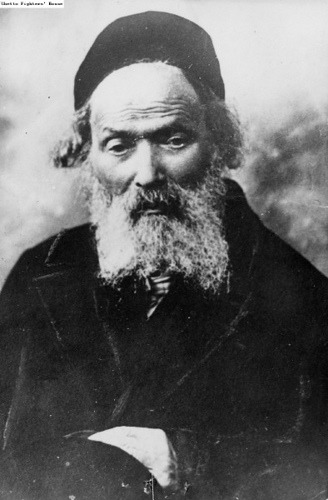
Imagine a foreign diplomat claiming that the only measure holding up world economic recovery is American politics? What if for instance, it was said that the election season in the United States was the primary reason for failure to secure a new agreement to stop Somali pirates (AKA Islamic ship jacking: see Jefferson and the Barbarians as background)?
I cannot say I am surprised given Ms. Rice's lack of success in diplomacy that she would have the audacity to lay blame for the administration's perceived failure to secure a "peace treaty" between the Arabians and Israel on the Jews. Perceived, meaning, success would have been worse.
Ms. Rice has consistently ignored the facts on the ground and the realities of what a successful conclusion to her talks would look like. Like all power crazed politicians determined to establish a favorable legacy, somehow, just somehow, she has managed to miss the point that the barbarians she is negotiating with are still determined to at the very least undermine the security of the Jews with which she is insisting that an agreement be had. Forget selling her the reality, that they, the barbarians, have never given up the kill factor.
We have been there before. A democratic and non-threatening "Palestine", like a drug induced vision held by professional diplomats who believe all evil can be conquered by the suffrage of the ballot box, is just as much a fantasy as it was when first envisioned as a means to make the Jews trust their Edomite supervisors and would be Yishmaelite masters. What the next four years holds only HaKadosh Baruch Hu can say. We have gone from bad to worse - the instrument in his hands has been forged. Will the children of Israel, the goy kadosh, listen to his words before Edom swings the axe? It will indeed be a great test to blunt the axe before it swings with more political obstruction in the form of a new nationalist government in Israel.

Rice: Israeli politics preventing peace
Nov. 23, 2008
Hilary Leila Krieger and AP , THE JERUSALEM POST
The fact that Israel and the Palestinians have not reached a peace agreement and will likely fail to do so by the end of 2008 is "largely due to" political turmoil in Israel, US Secretary of State Condoleezza Rice said Sunday night.
"Even though there was not an agreement by the end of the year, it is really largely because of the political situation in Israel," Rice told reporters.
Still, she tried to remain upbeat about the peace process, adding, "It's in pretty good shape."
Prime Minister Ehud Olmert arrived in Washington Sunday, and was set to meet with Deputy National Security Adviser Elliott Abrams later in the day to kick off his farewell visit with US President George W. Bush.
The parley with Abrams was one of a number of preparatory meetings before a working meeting and private dinner with Bush that Olmert will hold Monday night.
Iran, Syria and the Israeli-Palestinian negotiations are expected to dominate the conversations, as Olmert looks to secure policies and priorities worked out with the Bush administration before both he and the US president leave office at the beginning of the next year.
While Bush and Olmert have enjoyed good relations and have seen eye-to-eye on many issues, they have struck different postures when it has come to negotiating with Syria, which Israel has been doing indirectly for many months.
"The prime minister wants to generate a final tailwind for the Syrian track," one of the PM's aides said, as quoted in Reuters ahead of the visit.
Olmert Spokesman Ya'akov Galanti told The Jerusalem Post that was in keeping with Olmert's efforts to continue pressing on these issues until he leaves office when Israeli elections are held in February.
The Oval Office meeting also presents an opportunity for the two leaders to leave a blueprint for fulfilling their ambitious but unrealized Israeli-Palestinian peace agendas. Paving the way for a smooth and productive transition is also an important aim of the visit.
Just a year ago, Olmert and the Palestinian Authority president, Mahmoud Abbas, proudly announced the resumption of peace talks after a seven-year hiatus at a summit hosted by Bush in Annapolis, Maryland. The three set a target of wrapping up a final peace deal by the end of 2008.
Despite frequent negotiating sessions, two trips to the region by Bush and eight more by Rice, the sides have little to show for their efforts and have acknowledged the year-end target will not be met.
With his time in power running out, Olmert has become increasingly candid, saying Israel will have to withdraw from almost all the West Bank and parts of east Jerusalem to make peace with the Palestinians. Talk of such concessions was virtually unheard of just a few years ago.
"I know that Mr. Olmert wants to leave to whomever is elected as the next prime minister the peace process in the best shape possible," spokesman Mark Regev said.
Bush, who spent the weekend in Peru at a meeting of Pacific Rim nations, invited Olmert to Washington as part of his final round of talks with world leaders before he leaves office January 20.
Olmert often speaks of the close personal friendship he has developed with Bush over the past three years. When Bush visited Israel in May, Olmert showered the president with praise, saying, "You're a great person, you're a great leader, and you're a great friend." Though largely unpopular internationally, Bush is loved in Israel, where he is seen as a staunch defender of the US ally.
"It's a farewell, a double farewell," said Danny Ayalon, a former Israeli ambassador to Washington. "They will try to sum up a period and cement all the understandings and agreements between the US and Israel over the last eight years."
After Monday's meeting, Olmert and his wife, Aliza, will dine with the president and first lady Laura Bush at the White House.
The two leaders probably also will discuss the global financial crisis and the future of arms and aircraft deals with Israel.
During his visit to Washington, Olmert also planned to meet with Rice, Vice President Dick Cheney, national security adviser Stephen Hadley, and congressional and Jewish leaders.
Bush leaves office on January 20. Olmert, who announced plans to resign in September amid corruption charges, will step down after a successor is chosen February 10.
























































0 comments:
Post a Comment